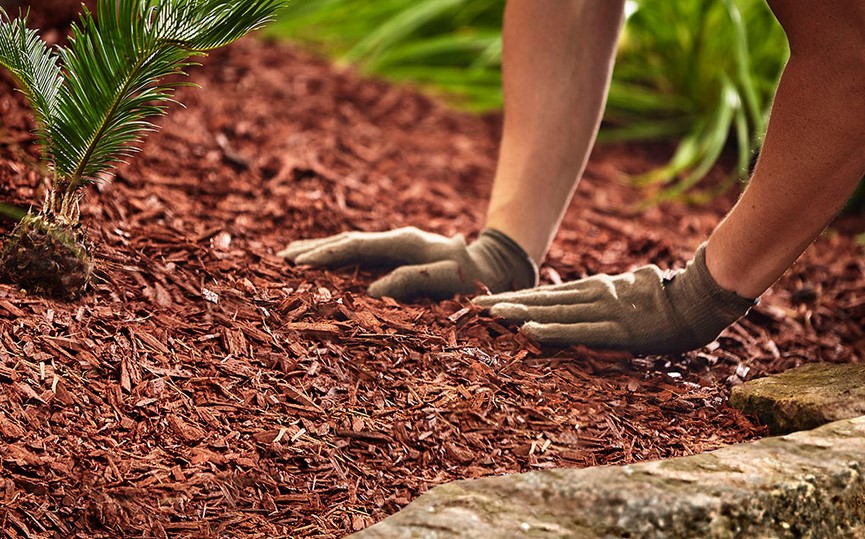
There are several different types of mulches, and these can be used in your gardens. Here’s what to consider before selecting one for your garden. The best mulch types are those that improve soil health. They break down naturally, increasing the organic matter content and releasing nutrients into the soil. It will also keep weeds from growing in your garden. These benefits make organic mulch the best choice for gardens learn more about mulch at garden mulch delivery Mcdonough GA.
Hardwood
If you’re planning to add hardwood mulch to your garden, you should know a few things. First, hardwood mulch will take the longest to break down because it’s made of large pieces that can become displaced by water. For this reason, it’s best to use softwood instead of hardwood. Pine, for example, is softwood, and the needles easily pop free from the twine wrapper. However, they don’t break down as fast as shredded mulch and will stay in place even after heavy rains or slopes.
Another thing to consider is moisture retention. At the same time, hardwood mulch is best for gardens, and pine bark mulch trails behind in terms of moisture retention. Lightweight wood doesn’t hold moisture well and therefore is prone to floating in a rainstorm. Also, it won’t stay in place well if you have a steep incline. On the other hand, Cedar mulch is made of pieces of cedar wood and has a strong woody smell.
Softwood
If you’re trying to decide what type of mulch is best for your garden, the answer is both wood chips and softwood. While a vegetable garden can use just about anything, you’ll need to exercise more restraint with a flower bed. While it may be tempting to use a black mulch to give your plants a pop of color, avoid this if you want to make your flower bed pop!
While wood chips are popular, they’re not the most appropriate mulch for some plants. Shredded materials are better for planting annuals and perennials with shallow roots. And unless you’re sure you can afford the expense, use wood chips only on your garden’s borders. Fresh cedar chips can leach nitrogen from the soil, so you’ll need to use older chips. While aged wood chips won’t fade as quickly as fresh ones, they can be costly.
Fabric
There are many advantages to using fabric mulch in your garden. It is lightweight, which means that it won’t crush tender plants. It also protects from frost in the fall, which extends the growing season. The material is also easy to cut into several different lengths. In addition to its many uses, fabric mulch is environmentally friendly, and the best part is that it won’t release chemicals into the soil.
If you’re wondering which type of fabric mulch is the best choice for your garden, consider its thickness. Thicker fabric will provide more excellent protection from fading and tearing. It is also easier to handle than paper mulch, which may tear easily. Depending on the amount of mulch you’re planning to use, you can buy fabric that is 3-6 feet wide and up to four or five hundred feet long. If you plan to use fabric mulch for a large area, you’ll need to purchase a larger piece of fabric.
Wood chips
Wood chips are a good choice for your garden, as they can provide excellent weed control and contrast with pine needles. These wood chips are made from ground-up pieces of wood and bark. Depending on the thickness and type, they’re great for covering woodland paths and will decompose in two to three years. However, wood chips can attract termites and may not be ideal for gardens with sensitive plants. Depending on the species and location, wood chips may need to be replaced every other year.
The shallow zone under wood chips may not have adequate amounts of nitrogen. Bacteria use up this nitrogen in the process of decomposing organic matter. As a result, wood chips aren’t ideal for the deeper roots of shrubs and trees, as they need adequate nutrients. Wood chips can also reduce the germination of weed seeds, which is a good thing as fewer weeds mean a more significant amount of nutrients available for plants.
Cocoa bean hulls
Compared to bark, cocoa hulls provide your garden with several beneficial benefits. These mulches prevent water evaporation, retain moisture, and smell great. Best of all, cocoa hulls are wind-resistant and smell great for over a month after being spread. As a bonus, cocoa hulls are shallow in pH, so they’re also great for soil conditioning.
When applied as mulch to your garden, cocoa bean hulls will improve soil vitality and provide an attractive top cover for your flower beds. Using cocoa bean mulch will also help you save money on chemical pesticides. Cocoa bean mulches will last for a long time and gradually decompose over time, releasing vital nutrients into your soil. Plants will take advantage of this natural mulch.
